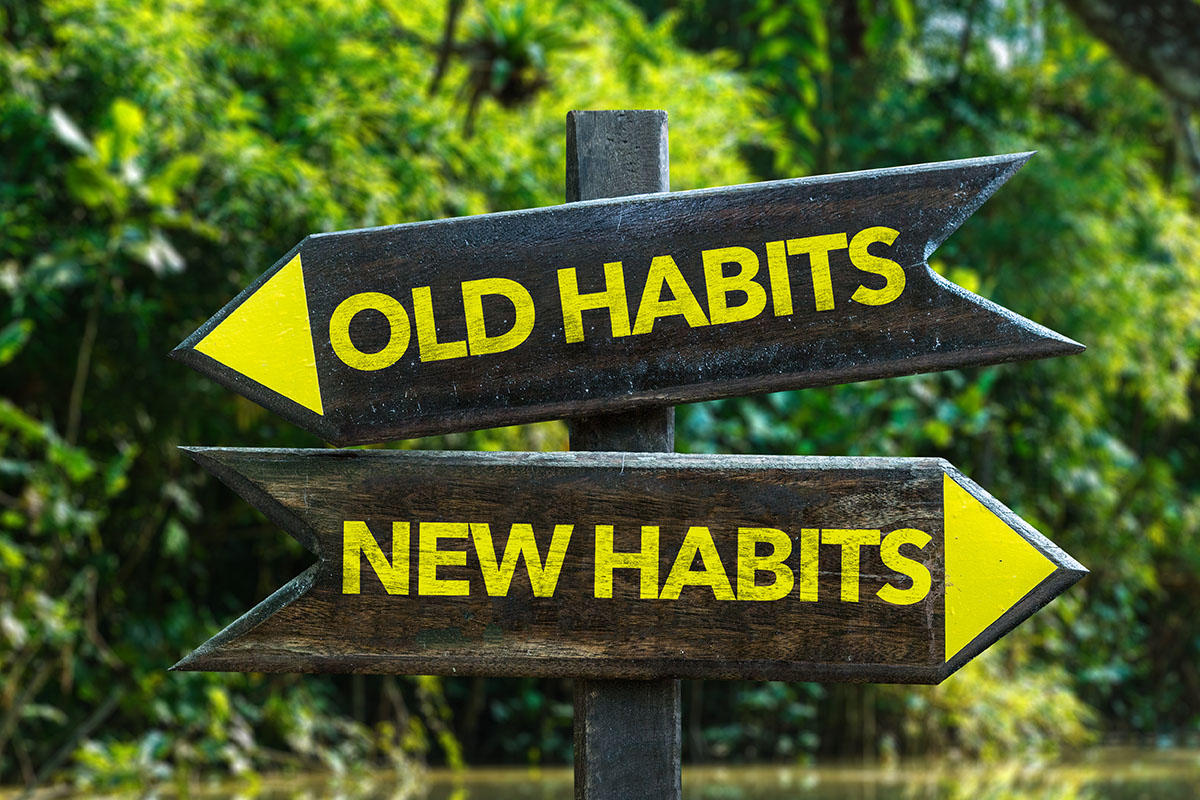In a world full of tough challenges that can put the human spirit to the test, addiction stands out as one of the most formidable foes. Its sneaky and relentless hold can completely change lives in unimaginable ways, affecting not only the person trapped but also those who care about them.
However, even in the face of such a powerful enemy, there is a glimmer of hope — the chance for recovery.
Recovery from addiction is a personal and empowering journey. This guide is here to help you navigate it with resilience and determination. Whether you’re facing addiction or supporting someone on this challenging path, our mission is to provide insights, resources, and a sense of community.
Acknowledge the Problem
In recovery from addiction, like so many other situations, recognizing that an issue exists is a necessary first step. It’s only possible to make changes when you recognize that something needs to change.
That doesn’t mean it’s easy or simple to acknowledge addiction issues, of course. It can be very difficult for someone to recognize substance dependency and the broad impact it has on their life. That’s true for substance addiction as well as process addiction.
Addictions can take some time to develop. They can involve physical as well as psychological dependence. Some people with addiction issues need detox treatment to deal with the health risks that can come with stopping their use of an addictive substance.
Crucially, addiction also changes the way the brain works, as the National Institute on Drug Abuse explains. To put it simply, addiction is a complex issue that can display itself in many different ways.
No matter the circumstances, people in general rarely want to admit that they have a problem or need help from others. However, this is the first step toward making a positive change. There’s a reason why so many addiction recovery models, including the 12-step format, start with acknowledging the issue, as VeryWellHealth points out.
Acknowledging the problem isn’t always easy, but it can be the beginning of a journey toward recovery and sobriety. Taking this action empowers people to shift their focus from minimizing or denying the issue to looking for realistic and effective solutions.
Remember that solutions and support are available. There are proven methods for making positive change and becoming sober. That’s true even if you’re just now considering that you or a loved one may have an addiction issue.
Seek Professional Assistance and Support
Evidence-based addiction recovery and care can be incredibly valuable for people with addiction issues. It’s important to recognize that, in most cases, addiction recovery should not fall only on your or your loved one’s shoulders.
As just one example. there are potentially serious health issues that can stem from the decision to stop using certain substances. Medically supervised detox helps keep people safe from the serious health issues that can happen as the body adjusts to the lack of a substance.
In the bigger picture, professionals can help people who want to stop using and recover from addiction issues by:
- Creating and managing a space focused on recovery and personal change.
- Taking a comprehensive approach to treating addiction. That includes substance use disorder and addiction itself, as well as the mental health issues that can occur with and/or contribute to addiction.
- Providing social support directly and through opportunities to positively interact and build relationships with others in recovery.
- Monitoring and managing the path of recovery for each individual, adjusting services to their needs as time goes on and people in treatment make progress.
- Keeping family and friends informed whenever appropriate, as well as providing services to them such as workshops and support groups.
- Creating more effective barriers to relapse through structured inpatient and outpatient programs.
Not every person’s journey through a professional-led, evidence-based, and holistic model of addiction recovery will be exactly the same. However, there are common stages of the process that many people in recovery from addiction will experience. These include:
- Intervention. Family and close friends reach out to their loved one to express their concerns about substance use and offer support for seeking treatment. Some people who choose to enter treatment themselves may not experience an intervention.
- Detox. Detox helps people stay safe and comfortable as they deal with the difficult and uncomfortable experience of ceasing active use. It’s also a time for professionals to assess someone just starting recovery by identifying key needs and developing a treatment plan.
- Residential (inpatient) treatment. Inpatient treatment offers a controlled, safe, comfortable, and peaceful environment for people starting their recovery journeys. With few distractions and plenty of support, this level of care encourages sustainable progress.
- Partial hospitalization program (PHP). PHPs offer a certain amount of flexibility while still heavily emphasizing recovery, development of coping skills, and positive progress. They can be appropriate for certain people following detox and can help with the transition from inpatient to outpatient treatment.
- Intensive outpatient therapy. Outpatient therapy helps to build on successes during inpatient treatment as people start the transition back to regular daily life. It’s especially valuable for learning how to deal with triggers that lead to use and to continue building coping skills that support sobriety.
- Sober living. Sober living communities provide social support, accountability, and convenience as people move closer to fully returning to everyday life. They help to build on past progress as people face new challenges and stress outside of more intensive treatment.
- Alumni support. Alumni groups help patients who complete these programs stay accountable, celebrate success, and deal with setbacks. Sobriety is a lifelong journey, so it requires ongoing support.
At Infinite Recovery, our goal is to provide constant evaluation and support in the least restrictive environment possible. We strongly suggest following your individualized treatment plan for the best chance of long-term success.
“We don’t just want you to survive in treatment,” says Clinical Director Brett Miller, LPC, LCDC. “We want you to thrive in life.”
It’s not an ideal situation, but it’s important to recognize that addiction can come back. Life changes and we can all go through transitions that cause stress or activate triggers for using a substance. Sobriety is a lifelong process that requires vigilance and determination.
An effective, evidence-based approach to addiction recovery helps to make sure all the changes made to support a sober life can continue once active treatment is complete.
Build a Support System
Support systems help people in recovery continue to make progress and maintain sobriety. These systems can include friends and family who help people in recovery stay sober, healthy coping mechanisms, support groups, therapy, and many other possibilities.
The Substance Abuse and Mental Health Services Administration (SAMHSA) explains that recovery has four dimensions:
- Health, including treatment, ongoing recovery, and general health.
- Home, a safe and stable living space.
- Purpose, such as having a job, going to school, and volunteering.
- Community, including relationships and social networks that provide support, friendship, and love.
Support systems can take many forms to address these dimensions of recovery. Examples range from a family member offering a safe, stable space to live after completing treatment programs to support groups focused on sobriety.
Therapy is often a key part of a complete support system. Therapy during and after treatment helps people identify triggers, address current and underlying issues, build healthy coping mechanisms, and develop an effective mindset for sobriety.
Individual therapy, group therapy, family therapy, and other types of therapy can help both people recovering from addiction and their friends and family members. Members of your support system can address their own issues stemming from addiction as well as learn how to support you more effectively and compassionately.
Coping Strategies for Addiction Recovery
In general, coping strategies and skills can help everyone address sources of stress and tension in their lives. For people in recovery from addiction, coping strategies are especially important. They help to deflect excessive attention away from stress and potential triggers, keeping people in recovery on safe and stable ground.
These strategies are often relatively simple. They might even sound obvious, such as collecting yourself and taking a breath before responding to a source of stress.
However, these strategies can take significant time and effort to build as a tool for staying sober and level-headed. As simple as the behaviors themselves can be, the work done to develop them as a go-to reaction or calming influence is impressive.
Coping strategies can include building a network of sober people as a support mechanism, engaging in therapy, exercising, and even journaling. It’s all about finding healthy outlets for stress and addressing triggers for use.
Relapse Prevention in Addiction Recovery
We want to be clear that addiction recovery is a lifelong journey. Sobriety is always the goal, but many people will experience setbacks and relapses.
The National Institute on Drug Abuse points out that lifetime relapse rates for substance use disorders sit somewhere between 40-60%. Relapses don’t happen to every single person who deals with addiction, but they do happen frequently.
It’s incredibly important for people in recovery and their loved ones to recognize the big picture in these situations. A relapse does mean that it’s important to find help and support and make positive changes to better avoid the underlying causes of a relapse in the future.
However, a relapse is by no means a long-term failure or a sign that an addiction recovery program was ineffective. Addiction treatment is a lifelong project, and nothing lasting that long will always go perfectly.
Making a relapse prevention plan can help to avoid the issues that lead to a relapse. Part of this planning involves knowing your personal stressors and triggers, as well as using the coping mechanisms and support systems you know you can rely on.
However, in a more general sense, you can take actions like keeping a list of sober friends and family to call when you feel at risk of relapsing. Similarly, you can identify activities and other coping mechanisms to turn to when you feel tempted.
The process of building a plan can give you some reassurance, too. Knowing that you have a strategy for dealing with stress and triggers can be a coping mechanism of its own.
Maintaining Long-Term Sobriety
Long-term sobriety is the ultimate goal of addiction recovery treatment. While intensive treatment only lasts so long, recovery is a lifelong process.
How can you maintain long-term sobriety?
Building a foundation during treatment is crucial, of course. Dedicating the time to making major changes in a supportive, caring, controlled environment helps. Treatment is a time to start developing coping mechanisms and support structures that can help for years and decades to come.
Ongoing therapy and support groups are also very valuable. Discussing progress, setbacks, potential triggers, and similar topics can help someone in addiction recovery address difficult feelings and situations. Ultimately, that can reinforce the good habits developed during initial treatment.
Having support systems in place provides stability and lets someone in recovery know they can access assistance if they need it. That knowledge is valuable by itself — it’s a reminder that a person in recovery doesn’t have to go it alone.
Similarly, building a relapse prevention plan can also provide some reassurance. Instead of trying to find an outlet for complex emotions or thoughts related to use, a person in recovery knows they have helpful resources documented and can quickly access them.
Beginning Recovery from Addiction
If you’re considering addiction recovery treatment for yourself or a loved one, things may look dark or bleak right now. That’s totally understandable — just remember that evidence-based and effective solutions and support are available.
There is hope for recovery. Even if you’ve tried in the past and have been unsuccessful, today is a new day.
Infinite Recovery is a new opportunity to move forward in treatment and recovery. If you have a willingness to try, we will do as much as we possibly can to help you find a sustainable path to recovery from addiction.
Ready to transform your life? Reach out to us today.





